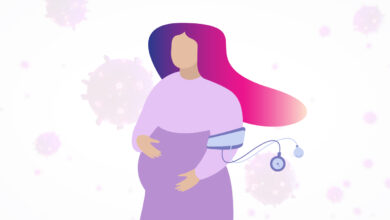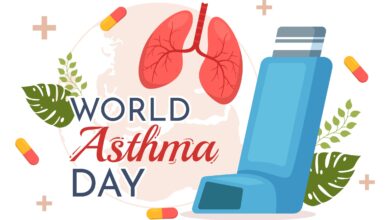Schizophrenia

Sometimes, you see some people around you whom you think have lost touch with reality. Even though it is not counted as part of the major mental illnesses because it’s not really common, did you ever think they are suffering from the most chronic and disabling mental illness called Schizophrenia?

Definition
Psychotic episodes can be once in a lifetime for some people; they may be a series or several episodes during a lifetime in others while leading a normal life in between.
Schizophrenia is a chronic and severe mental disorder that affects the way a person thinks, acts, expresses emotions, perceives reality, and relates with others. Contrary to the common belief of schizophrenia being split or multiple personalities, schizophrenia involves a psychotic disorder, where a person can no longer perceive the present realm or reality. This includes a mix of confusing thoughts, unrealistic images and sounds. Therefore, a sudden change in personality and behaviour which happens when a person with schizophrenia loses touch with reality is called a Psychotic Episode.

Epidemiology of Schizophrenia
The prevalence of schizophrenia (i.e., the number of cases in a population at any time point) approaches one (1) percent internationally. The incidence (the number of new cases annually) is about 1.5 per 10,000 people. The age of onset is typically during adolescence; childhood and late-life (over 45 years) onset are rare.
Causes of Schizophrenia
Researchers have not identified or pinpointed one single cause of schizophrenia, but it’s believed that a combination of genetic and environmental factors can predominantly contribute to the development of the disorder. Problems with neurotransmitters such as dopamine and glutamate may also contribute to schizophrenia.
Risk factors of Schizophrenia
Although no substantial cause of schizophrenia has been confirmed as of today, certain factors seem to increase the risk of developing or triggering it. These include:
- Having a family history of schizophrenia.
- Some pregnancy or birth complications such as malnutrition, or exposure to some toxins during prenatal brain development.
- Consumption or exposure to psychoactive or psychotropic drugs during teen years or young adulthood
Symptoms
Schizophrenia is commonly diagnosed in the late teen years to the early thirties (30s). It emerges earlier in males (from late adolescence to early twenties (20s)) than in females (early 20s to early 30s). Schizophrenia can occur in younger children, but it is rare.
Schizophrenia is diagnosed following the first psychotic episode or psychosis. This begins with a gradual change in mood, thinking, or social relationship among peers, which often starts in mid-adolescence.
The symptoms of schizophrenia are categorized into three (3):
- Positive symptoms: These include symptoms that are not normally experienced except during psychotic episodes. In simpler terms, these are symptoms expressed as an addition to normal emotional or psychological responses. They include:
- Hallucinations: These include hearing voices or seeing things that aren’t there, and also can involve any other sense of taste, sight, and touch.
- Delusions: These are firmly held beliefs that are not supported by objective facts, e.g paranoia (irrational fear that other people are out to get or harm you.)
- Thought disorder: This involves thought blocking, and disorganized speech. Also, believing that thoughts are being inserted into your mind.
PS: Positive symptoms generally respond well to medication and improve over the cause of the management of the illness.
- Negative symptoms: These involve loss of emotional responses or loss of motivation. It can also be defined in a clearer way that they are symptoms that are expressed as a reduction in normal emotional or psychological responses. It has five (5) domains which are:
– Blunt affect – showing flat expressions or little emotion
– Alogia – poverty of speech
– Anhedonia – an inability to feel pleasure
– Asociality – lack of motivation to engage in social interaction, or a preference for solitary activities
– Avolition – a lack of motivation
Treatment
Schizophrenia is a long-term life condition, but effective treatment can help the person manage the symptoms, prevent relapses, and avoid hospitalization. Each patient’s symptoms will be different and medications are prescribed to suit each individual.
Since the cause of schizophrenia had not been fully understood as stated earlier, therefore, medications are only given based on the symptoms diagnosed so as to ameliorate them, and hence, there is no absolute panacea yet.
The various medications used in the management of schizophrenia include:
• Antipsychotic Medications: These can help in reducing the intensity and frequency of psychotic symptoms. Some are taken daily in pills, or liquid form, while others are taken as injections once or twice a month depending on the choice of the patient and doctor’s prescription.
• Psychosocial therapy: This includes cognitive behavioural therapy, behavioural skill training, and supported employment. Cognitive remediation interventions may also help address the negative and cognitive symptoms of schizophrenia. These help in teaching and improving coping skills to address the everyday challenges of schizophrenia.
• Family education and support: Education and orientation programs for family members and friends offer instructions about schizophrenia symptoms and treatments and strategies for assisting the person with the illness, and most importantly, orientation to shun stigmatization.
• Coordinated special care: Coordinated specialty care (CSC) is a recovery-oriented treatment program for people with first-episode psychosis (FEP). CSC promotes shared decision-making and uses a team of specialists who work with the client to create a personal treatment plan.
Abdulbasit Oyetunji
Bibliography
- National institute of mental health: https://www.nimh.nih.gov/health/topics/schizophrenia/raise/what-is-coordinated-specialty-care-csc
- American Psychiatric Association: https://www.psychiatry.org/patients-families/schizophrenia/what-is-schizophrenia
- WebMD, Smitha B., January 2022: https://www.webmd.com/schizophrenia/mental-health-schizophrenia
- Häfner H, an der Heiden W. Epidemiology of schizophrenia. Can J Psychiatry. 1997 Mar;42(2):139-51. doi: 10.1177/070674379704200204. PMID: 9067063.




